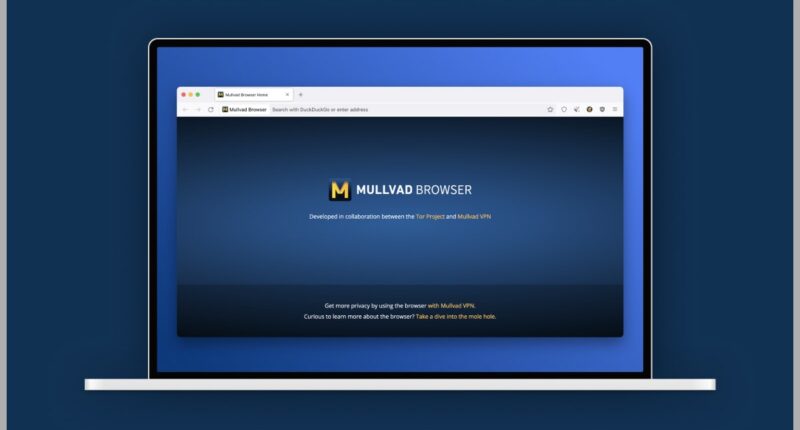
The easiest way to use the digital anonymity service Tor is through the Tor Browser. You download and use it like a regular browser, and it covers your digital footprints as you go, making it very difficult for anyone to track your online activity. On top of that, the Tor Browser is designed with countersurveillance measures that block trackers and stymie device fingerprinting methods. But you might not want to use the Tor Browser all the time, because it has relatively slow page load times and can be a bit cumbersome. But launching today, a new browser developed by the Tor Project’s user experience and applications teams offers the same privacy focus built with different infrastructure to incorporate VPN support instead of Tor.
Known as the Mullvad Browser, the tool comes out of a collaboration between the Tor Project and the VPN maker Mullvad. The free, open source browser is available now for download. The VPN space is crowded and has some problematic players, but Mullvad has consistently been a well-regarded and trusted VPN because it’s open source, doesn’t monetize user data, and provides independent third-party audits of its systems and infrastructure. Nonetheless, the Mullvad Browser can be used with any VPN you trust or can be used without a VPN as simply a privacy-focused browser.
“We’re not here to compete and to win browser market share; we are here because our mission is to advance human rights with technology,” says Isabela Bagueros, executive director of the Tor Project. “So we want to provide alternatives for people who need privacy and censorship bypassing.”
Photograph: Tor Project
Both the Tor Network and virtual private networks encrypt your web traffic and tunnel it through an intermediary, but Tor is focused on the anonymity that comes from a specific scheme of sending your traffic through a series of “hops” or special servers. VPNs, in contrast, don’t take such great pains to anonymize your traffic and instead focus on offering privacy protections by creating a system in which only you and the VPN provider can see your web activity. As a result, VPNs have a complicated reputation, because they are only as private as the VPN provider is trustworthy. Depending on your use case and circumstances, though, they can be a valuable tool.
“Mullvad’s mission is to make mass surveillance impractical, and a VPN alone is not enough for achieving online privacy—you also need a privacy-focused web browser,” says Mullvad CEO Jan Jonsson. “We wanted to offer a privacy-focused browser as good as the Tor Browser but for those who want to connect to the internet through a VPN instead of the Tor Network. The collaboration is all about providing more privacy alternatives for people.”
The Tor Project and Mullvad both said of each other that they were attracted to the collaboration by the other’s record on human rights and digital privacy initiatives. And Mullvad has been a longtime financial supporter of the Tor Project, which is a nonprofit.
There are other well-regarded privacy browsers, like Brave, and they can also be used with a VPN or even have built-in VPN capabilities. But the Tor Project says that their years of experience pioneering antitracking techniques like cookie isolation and other anti-surveillance technologies means that Mullvad Browser is launching at a very high quality. Tor Project’s Bagueros adds that, while developing Mullvad Browser, the team made some discoveries and improvements that have now been incorporated back into the Tor Browser.
“Maybe this new browser will reach an audience that we’re not reaching right now,” Bagueros says. “Multiple alternatives can coexist and support each other. We’re into building alternatives in collaboration, in solidarity with other organizations, because this is a big fight. We’re going against big players, so we need to work together.”








